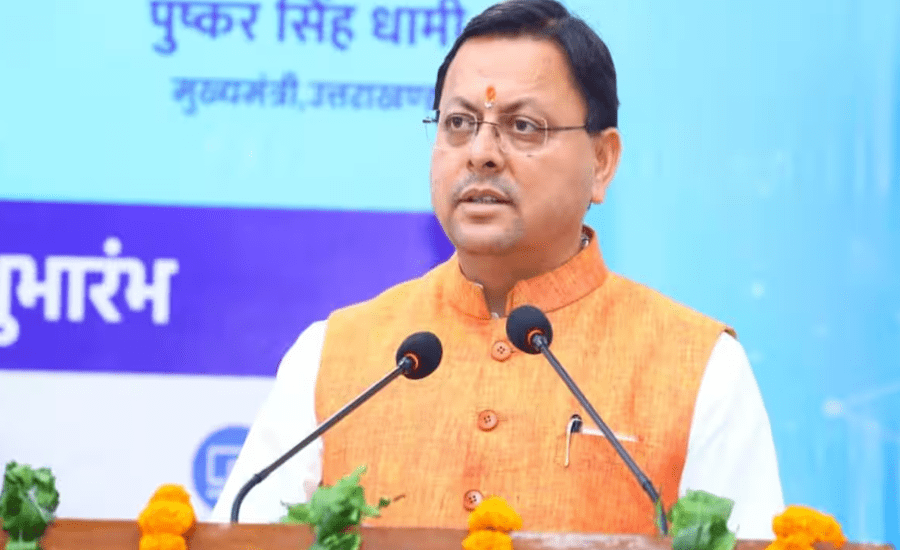Champawat: The Uttarakhand government has launched a monumental redevelopment project to transform over 200 square kilometers of land in Champawat district, aiming to create a region that is not only a religious and cultural hub but also a major tourist and environmental hotspot. The ambitious Rs 3,300 crore Sharda Corridor project is set to rejuvenate key areas including Sharda Ghat, Banbasa, and surrounding locales, blending faith with development to usher in economic prosperity and cultural enrichment.
Holistic Development: Religion, Culture, and Tourism at the Core
The Chief Minister, Pushkar Singh Dhami, emphasized that the primary goal of the Sharda Corridor is the “holistic development” of the region, focusing on its religious, cultural, tourism, and environmental potential. In a recent review of the project, Dhami underscored the vision of transforming the area into an attractive and sustainable destination, not only for pilgrims but also for tourists and nature enthusiasts. “This land will no longer remain just a centre of faith; it will also usher in new economic prosperity and opportunities for the people here,” he added.
Key Features of the First Phase of the Project
The first phase of the Sharda Corridor development is valued at Rs 185 crore and includes several critical initiatives aimed at enhancing the region’s infrastructure and appeal. The most significant of these is the Sharda Ghat Redevelopment Project, which aims to transform the riverfront into an eco-sensitive, clean, and aesthetically pleasing area for both locals and visitors.
Additionally, the project will include:
- City Drainage Plan (Rs 62 crore): A comprehensive plan to improve drainage systems, ensuring better urban management in the district.
- Restoration of Rankochi Mata Temple: A key religious site is set for preservation and development to boost faith-based tourism.
- Development of Heliport at Banbasa: To facilitate easier access to the region, enhancing connectivity for tourists and pilgrims.
- Mountain Bike Trail from Chuka to Chalti: Creating recreational opportunities that draw adventure tourists to the area.
- International Border Market at Banbasa: A vibrant cross-border market aimed at increasing economic activity between India and Nepal, driving trade and tourism.
Sustainability and Environment at the Heart of the Project
The environmental aspect of the project is equally important, with several green initiatives in place, including the Kiroda Nala Ecological Corridor (Rs 109.57 crore) aimed at conserving biodiversity and enhancing the region’s disaster resilience. These measures reflect the government’s commitment to sustainable development and preserving the region’s natural beauty alongside infrastructural growth.
Further, the Shradha Path Riverbank Beautification and the Sharada Riverfront Master Plan are part of efforts to improve the aesthetic and environmental value of the region, making it a more attractive destination for visitors.
A Destination for Faith, Nature, and Tourism
The Sharda Corridor is also envisioned as a “destination wedding hub,” which will further bolster tourism and offer unique venues for celebrations. The Purnagiri and Mata Rankochi regions will be developed to offer an immersive experience combining religion, forest, wildlife, and nature education, providing visitors with an opportunity to experience the intersection of spirituality and nature.
Strategic Development Plans Underway
The project will be implemented through the Uttarakhand Infrastructure and Industrial Development Board (UDIIDB), with land acquisition and transfer processes in motion. The forest land required for the project is being transferred in coordination with the Forest Department. The project’s first phase is already underway, marking a significant step toward realizing the long-term vision for the Sharda Corridor.
Revitalizing Local Communities and Economy
Chief Minister Dhami emphasized that the project will not only enhance tourism but also improve the livelihood of local communities. “We aim to create a confluence of religion, nature, and livelihood,” he said, with a focus on sustainable tourism that empowers the region economically and culturally.
Future Phases and Long-Term Vision
As the first phase takes shape, the government is planning additional initiatives for future phases, focusing on strengthening the area’s tourism infrastructure, improving religious sites, and ensuring the region’s environmental sustainability. With a clear vision and robust planning, the Sharda Corridor project is set to become a game-changer for Uttarakhand, positioning the state as a leading destination for spiritual, cultural, and eco-tourism.





























